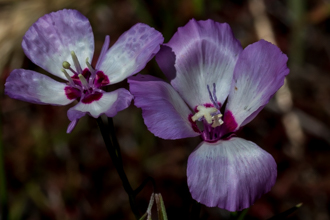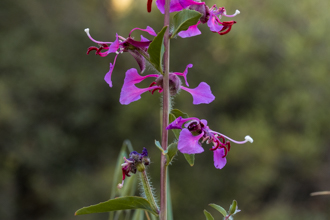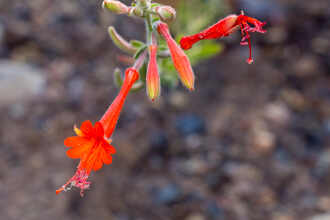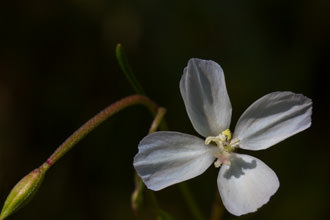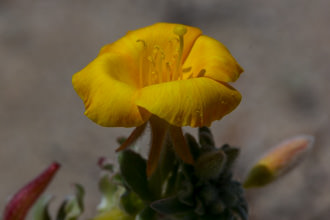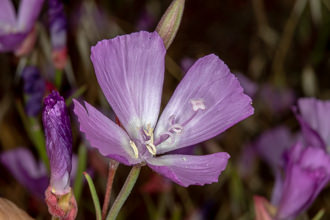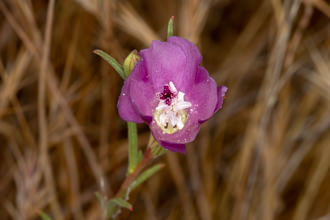
| Common Name(s): | Mustard Evening Primrose |
| Scientific Name: | Eulobus californicus |
| Family: | Onagraceae (Evening Primrose) |
| Plant Type: | Annual |
| Size: | up to 3 feet |
| Habitat: | Grassland, Chaparral, Coastal Sage Scrub, often on dry slopes |
| Blooms: | March to May |
| Fire Response: | Fire Follower |
The Mustard Evening Primrose is a lanky plant with sunny yellow flowers. Its shape resembles the common mustard weed. This flower is a magnet for White Line Sphinx Moth caterpillars. In the Spring, keep an eye out for these voracious caterpillars as they feast on their favorite plant. On the fire road leading into Upper Sycamore I have seen thousands of them! After undergoing metamorphosis, these caterpillars become the White Line Sphinx moth which maneuver from plant to plant like a hummingbird.
The bright yellow flowers have 4 petals arranged in a whorl and about 1/2 to 1 inch in diameter. Solitary and not numerous, the flowers form on short stems in leaf axils. Sometimes there are red spots at the petals' base. Before flowering there is a grouping of larger leaves at the base of the plant, each about 6 inches long and lance-shaped. Leaves along the stem are shorter, narrower, fewer, and with jagged edges.
The genus name Camissonia is in honor of the European botanist Ludolf Karl Adelbert von Chamisso. Another genus in the same family, Oenothera, contains the similar-looking plants California Evening Primrose (Oenothera californica) and Hookers Evening Primrose (Oenothera elata). Flowers in the Camissonia genus open during the day, while Oenothera open at night, thus lending their name to the family. Additionally, Oenothera flowers have a forked stigma while Camissonia stigmas are ball-shaped.
Contributed by Liz Baumann
